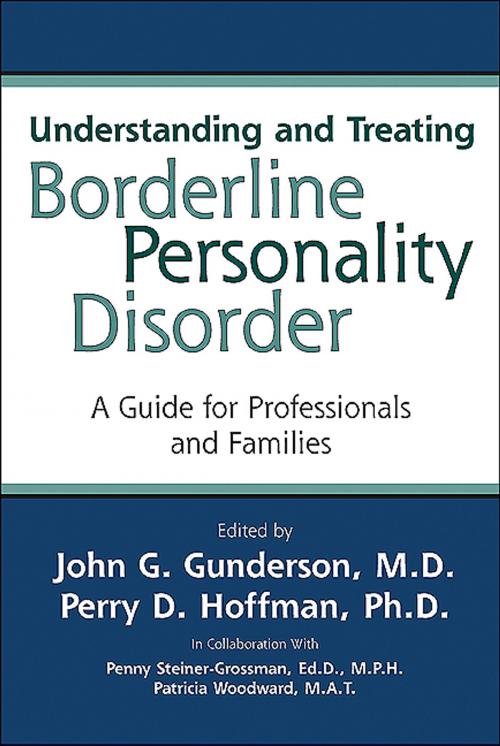Understanding and Treating Borderline Personality Disorder
A Guide for Professionals and Families
Nonfiction, Health & Well Being, Medical, Specialties, Psychiatry| Author: | ISBN: | 9781585626571 | |
| Publisher: | American Psychiatric Publishing | Publication: | April 2, 2007 |
| Imprint: | American Psychiatric Association Publishing | Language: | English |
| Author: | |
| ISBN: | 9781585626571 |
| Publisher: | American Psychiatric Publishing |
| Publication: | April 2, 2007 |
| Imprint: | American Psychiatric Association Publishing |
| Language: | English |
Understanding and Treating Borderline Personality Disorder: A Guide for Professionals and Families offers both a valuable update for mental health professionals and much-needed information and encouragement for BPD patients and their families and friends. The editors of this eminently practical and accessible text have brought together the wide-ranging and updated perspectives of 15 recognized experts who discuss topics such as A new understanding of BPD, suggesting that individuals may be genetically prone to developing BPD and that certain stressful events may trigger its onset New evidence for the success of various forms of psychotherapy, including Dialectical Behavior Therapy (DBT), in reducing self-injury, drug dependence, and days in the hospital for some groups of people with BPD Pharmacology research showing that the use of specific medications can relieve the cognitive, affective, and impulsive symptoms experienced by individuals with BPD, as part of a comprehensive psychosocial treatment plan New resources for families to help them deal with the dysregulated emotions of their loved ones with BPD and to build effective support systems for themselves
Yet much remains to be done. Research on BPD is 20 to 30 years behind that on other major psychiatric disorders such as schizophrenia and bipolar disorder. Despite evidence to the contrary, much of the professional literature on BPD continues to focus on childhood trauma, abuse, and neglect as triggers for BPD -- to the detriment of both patient and family.
Families of people with BPD must deal with an array of burdens in coping with the illness, often without basic information. The chapters on families and BPD give voice to the experience of BPD from the perspective of individuals and family members, and offer the hope that family involvement in treatment will be beneficial to everyone.
Above all, this book is about the partnership between mental health professionals and families affected by BPD, and about how such a partnership can advance our understanding and treatment of this disorder and provide hope for the future.
Understanding and Treating Borderline Personality Disorder: A Guide for Professionals and Families offers both a valuable update for mental health professionals and much-needed information and encouragement for BPD patients and their families and friends. The editors of this eminently practical and accessible text have brought together the wide-ranging and updated perspectives of 15 recognized experts who discuss topics such as A new understanding of BPD, suggesting that individuals may be genetically prone to developing BPD and that certain stressful events may trigger its onset New evidence for the success of various forms of psychotherapy, including Dialectical Behavior Therapy (DBT), in reducing self-injury, drug dependence, and days in the hospital for some groups of people with BPD Pharmacology research showing that the use of specific medications can relieve the cognitive, affective, and impulsive symptoms experienced by individuals with BPD, as part of a comprehensive psychosocial treatment plan New resources for families to help them deal with the dysregulated emotions of their loved ones with BPD and to build effective support systems for themselves
Yet much remains to be done. Research on BPD is 20 to 30 years behind that on other major psychiatric disorders such as schizophrenia and bipolar disorder. Despite evidence to the contrary, much of the professional literature on BPD continues to focus on childhood trauma, abuse, and neglect as triggers for BPD -- to the detriment of both patient and family.
Families of people with BPD must deal with an array of burdens in coping with the illness, often without basic information. The chapters on families and BPD give voice to the experience of BPD from the perspective of individuals and family members, and offer the hope that family involvement in treatment will be beneficial to everyone.
Above all, this book is about the partnership between mental health professionals and families affected by BPD, and about how such a partnership can advance our understanding and treatment of this disorder and provide hope for the future.















